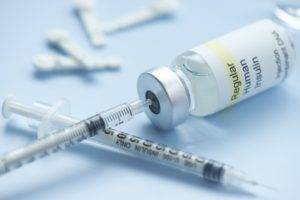
8 Lifestyle Tips to Reverse Type 2 Diabetes
8 Lifestyle Tips to Reverse Type 2 Diabetes

Reversing Type 2 Diabetes: The Role of Lifestyle Changes
Type 2 diabetes has become a global health challenge, affecting millions of people worldwide. While the condition is chronic, evidence shows that targeted lifestyle changes can help reverse it. By addressing the root causes and adopting healthier habits, many individuals can achieve better blood sugar control, reduce dependence on medications, and improve overall well-being.
This article explores effective lifestyle adjustments for reversing type 2 diabetes, empowering you to take charge of your health and unlock your body’s healing potential.
Why Lifestyle Changes Matter
Type 2 diabetes is not just a condition to manage; it’s a call to action. Rooted in insulin resistance and metabolic dysfunction, the condition requires more than medication. By improving diet, incorporating regular exercise, and addressing stress and sleep, you can improve insulin sensitivity and promote overall health.
Here are the top lifestyle changes to reverse type 2 diabetes:
1. Eat More Fiber
Fiber is essential for regulating blood sugar and improving insulin sensitivity.
Benefits of Fiber:
- Slows Digestion: Prevents blood sugar spikes after meals.
- Enhances Insulin Sensitivity: Reduces the body’s demand for insulin.
- Aids Weight Loss: Helps you feel fuller, reducing calorie intake.
- Boosts Gut Health: Feeds beneficial gut bacteria, which support glucose regulation.
Incorporate fiber-rich foods like fruits, vegetables, legumes, and whole grains into your meals.
2. Choose Healthy Fats
Not all fats are harmful. Monounsaturated and polyunsaturated fats improve insulin sensitivity and reduce inflammation.
Healthy Fats to Include:
- Nuts and seeds
- Avocados
- Olive oil
- Fatty fish like salmon and mackerel
These fats also support heart health, reduce inflammation, and aid in nutrient absorption.
Drink Plenty of Water

Water is vital for type 2 diabetics. Staying hydrated regulates blood sugar and enhances insulin sensitivity.
Benefits of Staying Hydrated:
- Improved Glucose Control: Water helps flush excess glucose from the body.
- Increased Insulin Receptivity: Enhances the body’s ability to use insulin effectively.
- Supports Weight Loss: Water is calorie-free and can curb hunger.
- Protects Kidney Health: Reduces strain on the kidneys by flushing out toxins.
- Better Digestion: Promotes healthy digestion and waste elimination.
4. Manage Stress
Chronic stress elevates cortisol levels, which interfere with insulin function and blood sugar regulation.
Stress-Reducing Strategies:
- Relaxation Techniques: Practice yoga, meditation, or deep breathing exercises.
- Regular Exercise: Releases endorphins that naturally reduce stress.
- Sleep: Aim for 7–8 hours of quality sleep per night to lower stress hormones.
- Social Support: Stay connected with friends, family, or support groups.
5. Get Enough Sleep
Sleep is critical for managing blood sugar and improving insulin sensitivity.
Benefits of Quality Sleep:
- Hormone Regulation: Supports metabolism and reduces cravings.
- Improved Insulin Sensitivity: Helps the body use insulin more effectively.
- Lower Risk of Complications: Reduces the likelihood of heart and kidney problems.
Establish a bedtime routine and avoid screens before sleep to improve sleep quality.
6. Quit Smoking
Smoking worsens insulin resistance and inflammation, increasing the risk of complications.
Benefits of Quitting Smoking:
- Enhanced Insulin Sensitivity: Helps manage blood sugar more effectively.
- Reduced Inflammation: Lowers the risk of diabetes-related complications.
- Improved Heart Health: Decreases the risk of cardiovascular disease.
Seek professional guidance for a tailored smoking cessation plan.
7. Maintain a Healthy Weight
Weight loss is one of the most effective ways to reverse type 2 diabetes. Even a 5–10% reduction in body weight can significantly improve insulin sensitivity and blood sugar control.
Benefits of Weight Loss:
- Improved Insulin Function: Helps regulate blood sugar more efficiently.
- Lower Risk of Complications: Reduces the likelihood of heart and kidney problems.
- Enhanced Mobility: Eases joint pain and inflammation.
Combine a balanced diet with regular exercise for sustainable weight loss.
8. Work with Your Healthcare Team
A comprehensive approach to reversing type 2 diabetes involves collaboration with your healthcare provider. They can guide you in:
- Monitoring blood sugar levels.
- Adjusting medications as your condition improves.
- Creating a personalized lifestyle plan tailored to your needs.
Why Reversing Type 2 Diabetes Matters
Reversing type 2 diabetes offers life-changing benefits:
- Better Quality of Life: Reduced symptoms like fatigue and frequent urination.
- Decreased Medication Use: Lower dependence on drugs and fewer side effects.
- Long-Term Results: Sustainable lifestyle changes lead to lasting health improvements.
- Lower Healthcare Costs: Fewer medications, doctor visits, and complications save money.
Conclusion
Reversing type 2 diabetes is achievable with the right lifestyle changes. By focusing on diet, exercise, hydration, stress management, and sleep, you can improve blood sugar control, reduce medication dependence, and enhance your overall well-being.
Ready to take the first step? Try the 21-Day Simple Diabetes Course and discover how small, sustainable changes can transform your health.
Watch My Free Diabetes Training Webinar: https://drjspages.com/webinar
Your journey to better health starts today—embrace the change and take control of your life.
Try the 21 day simple diabetes course
References:
https://aisel.aisnet.org/bled2016/24/
https://onlinelibrary.wiley.com/doi/full/10.1111/j.1464-5491.2007.02157.x







